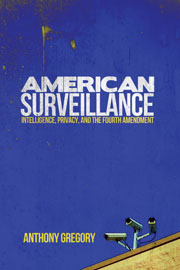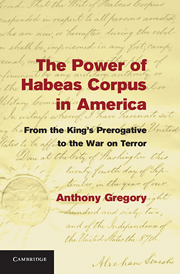Despite having escalated the war in Afghanistan, widened the drone killing in Pakistan, bombed Yemen and Somalia, waged various proxy wars, started a war in Libya, and dragged his feet in the Iraq withdrawal, Obama won the November election as the peace candidate.
In the foreign policy presidential debate, Obama boasted of his muscular achievements, yet also succeeded in casting Romney as even more belligerent. This was easy, since the Republicans have a well-deserved modern reputation for their bellicosity, having pushed through the last three biggest wars in American history. Mitt Romney, surrounded by Bush neocons, did not offer much hope for peaceniks, even when he said “we can’t kill our way out of this mess.”
Both conservatives and progressives perceive Obama as more reluctant to project American power abroad than the Republicans, and there might be some truth to this. So far.
History does not necessarily repeat itself predictably, but there are patterns worth noting here that reemerge again and again. In election season, we hear countless theories about what electoral trends “always hold” in presidential politics. Well, I’ve identified a fairly unsettling pattern myself:
Democrats seem to become more bellicose in their second term.
In the last hundred years, starting when early 20th century progressivism began shaping the ideology of the modern Democratic Party, the trend seems clear.
Woodrow Wilson, riding on the Democrats’ reputation as the party of foreign restraint, in contrast to the Spanish-American War Republicans, ran for reelection in 1916 on an explicit peace slogan: “He Kept Us Out of War.” The election coincided with his punitive expedition against Pancho Villa in Mexico, but Wilson still seemed less intent on entering the European bloodbath across the ocean than the Republicans did. Yet in his second term, Wilson dragged the United States into World War I, in the name of “making the world safe for democracy“ and “ending all wars.” Over 116,000 Americans died. Wilson proceeded to erect a domestic police state with the most vicious crackdowns on free speech in U.S. history, which saw the deportation of hundreds of political dissidents. In Europe, the balance of power was tipped, and communism and fascism rose from the ashes.
The very next Democratic president, Franklin D. Roosevelt, appeared to reinvigorate the party’s commitment to peace and free trade—at least compared to the warmongering and protectionist Republicans. In his second term, he signed off on a peacetime draft and began mobilizing for war, but still promised in the 1940 election to keep the United States out of war: “I have said this before, but I shall say it again and again and again; your boys are not going to be sent into any foreign wars.” In his third term, the United States entered the deadliest conflict in world history, and the most lethal foreign war for Americans—over 400,000 died. Japanese-Americans were interned, the whole economy was mobilized for battle, and the military-industrial complex was born.
FDR was succeeded by Harry Truman, and although Truman dropped the nuclear bombs on Japan in his first year, perhaps the most infamous U.S. war actions in history, the war also technically ended on his watch in the first term. But in his second term, Truman launched the first major hot conflict of the Cold War, starting a “police action” in Korea without congressional authorization, supporting the South Korean dictatorship while dropping 635,000 tons of bombs and 32,000 tons of napalm all over the north, killing about a million civilians and 37,000 Americans in the conflict. Republicans and conservatives initially spoke out in opposition to this new global crusade against communism, especially the conscription and violence in Korea.
Kennedy never got a second term, but Lyndon Johnson won reelection in 1964 with his notorious mushroom cloud attack ad against Goldwater. LBJ was the perceived peace candidate. He promised explicitly that year: “We are not going to send American boys nine or ten thousand miles away from home to do what Asian boys ought to be doing for themselves.” After reelection, he vastly escalated American intervention in Vietnam, eventually leading 58,000 Americans, mostly conscripts, to their deaths, and ultimately killing millions of Vietnamese through carpet bombings and other brutal methods.
Jimmy Carter never won a second term. But Bill Clinton did in 1996, as many of his supporters pushed the relative peace Americans had enjoyed.He was an interventionist in his first term, but it was in his second that he unleashed his most conspicuous war actions—Operation Desert Fox against Iraq, cruise missile attacks on Sudan and Afghanistan in 1998, and his most violent war, against Serbia, in 1999.
That brings us to President Obama, the fifth among Democrats starting with Wilson who won reelection on the perception of being pro-peace.
Modern Republicans, in contrast, have tended to be less bellicose in their second terms. Teddy Roosevelt was always a warmonger, but in his first term he oversaw the brutal suppression of insurgents in the Philippine war that caused hundreds of thousands of deaths. Eisenhower’s first term saw the war wind down in Korea and the CIA coups in Iran and Guatemala; his second wasn’t quite so eventful. Nixon spent his first term expanding the Vietnam war into Cambodia and upon reelection finally started winding it down and ended the draft as he originally promised. Ronald Reagan invaded Grenada and intensified saber rattling against the Soviets, reversing the peaceful Nixon-Ford-Carter policy of Détente toward the Soviet Union, but in the second term he tempered these policies, namely in his nuclear disarmament diplomacy at the Reykjavik summit, which his own advisers hesitated to support. We don’t know what George H.W. Bush’s second term would have been like, but I doubt he would have been as militaristic as in the first, when he invaded Panama and attacked Iraq. And George W. Bush’s first term occasioned the invasion and overthrow of two foreign regimes and a massive expansion of the warfare state; his second term was relatively quiet for those of us who feared he’d become much worse upon reelection.
Noam Chomsky has credibly compared Obama’s first term to Bush’s second. I fear that his second term will compare to Bush’s first. He has been arming unsavory characters throughout the Muslim world, playing with a full-blown war with Syria, and tightening the sanctions on Iran. He rang in the new year with a major escalation of drone bombings.
These patterns do not determine the future, and surely the sketch above is an over-generalization to which one could find many exceptions. Yet it seems a general and eerie trend does emerge: Republicans become less belligerent after reelection; Democrats become more bellicose.
But what could be the motive? Here is my fear: Obama, like most progressive Democrats before him, probably wants to go down in history as a truly great president. Meanwhile, he is spending lots of political capital on gun control measures he knows will face major resistance and can hurt his party. What better way to win back support from the center and neutralize the conservatives than to take a cue from the Democratic Party’s playbook and save the big explosions for Act II?
His progressive supporters might say they won’t stand for it, but historically, they either looked the other way or, more often, lined up enthusiastically, when their president decided it was time for war. Indeed, we have already seen the opposition to militarism, indefinite detention, and even torture decline on the mainstream left every year Obama’s been in power.
And to those who still insist you’ll hold your president’s feet to the fire, all I’ll say is: Please do. But you had your best chance in the first term to exert some pressure. Many of you put domestic policy ahead of foreign policy and forsook civil liberties for reelection. I fear it might be too late to turn back now.








